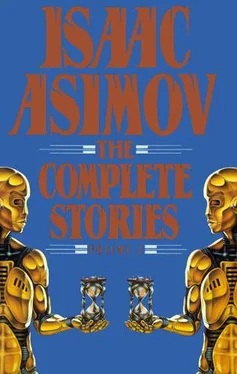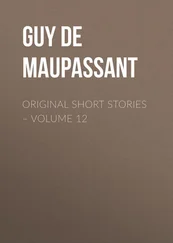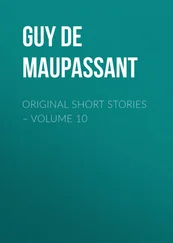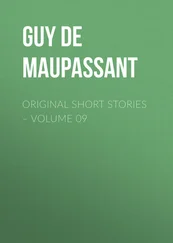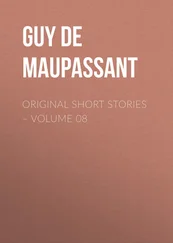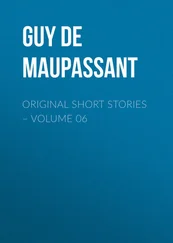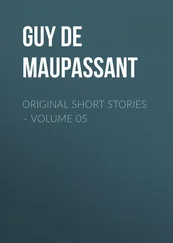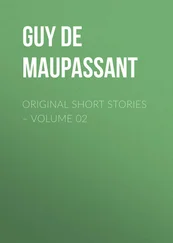Isaac Asimov - Short Stories Vol.1
Здесь есть возможность читать онлайн «Isaac Asimov - Short Stories Vol.1» весь текст электронной книги совершенно бесплатно (целиком полную версию без сокращений). В некоторых случаях можно слушать аудио, скачать через торрент в формате fb2 и присутствует краткое содержание. Жанр: Фантастика и фэнтези, на английском языке. Описание произведения, (предисловие) а так же отзывы посетителей доступны на портале библиотеки ЛибКат.
- Название:Short Stories Vol.1
- Автор:
- Жанр:
- Год:неизвестен
- ISBN:нет данных
- Рейтинг книги:4 / 5. Голосов: 1
-
Избранное:Добавить в избранное
- Отзывы:
-
Ваша оценка:
- 80
- 1
- 2
- 3
- 4
- 5
Short Stories Vol.1: краткое содержание, описание и аннотация
Предлагаем к чтению аннотацию, описание, краткое содержание или предисловие (зависит от того, что написал сам автор книги «Short Stories Vol.1»). Если вы не нашли необходимую информацию о книге — напишите в комментариях, мы постараемся отыскать её.
Short Stories Vol.1 — читать онлайн бесплатно полную книгу (весь текст) целиком
Ниже представлен текст книги, разбитый по страницам. Система сохранения места последней прочитанной страницы, позволяет с удобством читать онлайн бесплатно книгу «Short Stories Vol.1», без необходимости каждый раз заново искать на чём Вы остановились. Поставьте закладку, и сможете в любой момент перейти на страницу, на которой закончили чтение.
Интервал:
Закладка:
with the authors, who were biophysicists), making the language taut and meaningful and smoothing the style to a pleasant gloss.
"Why not?" he would say tolerantly to his nephew, who countered his strictures on degrees by berating him with his readiness to hang on the fringes of science. "The fringe is important. Your scientists can't write. Why should they be expected to? They aren't expected to be grand masters at chess or virtuosos at the violin, so why expect them to know how to put words together? Why not leave that for specialists, too?"
"Good Lord, Jonas, read your literature of a hundred years ago. Discount the fact that the science is out of date and that some of the expressions are out of date. Just try to read it and make sense out of it. It's just jaw-cracking, amateurish. Pages are published uselessly; whole articles which are either noncomprehensible or both."
"But you don't get recognition, Uncle Ralph," protested young Foster, who was getting ready to start his college career and was rather starry-eyed
* about it. "You could be a terrific researcher."
"I get recognition," said Nimmo. "Don't think for a minute I don't. Sure,
• a biochemist or a strato-meteorologist won't give me the time of day, but they pay me well enough. Just find out what happens when some first-class ; chemist finds the Commission has cut his year's allowance for science writing. He'll fight harder for enough funds to afford me, or someone like me, , than to get a recording ionograph."
He grinned broadly and Foster grinned back. Actually, he was proud of his paunchy, round-faced, stub-fingered uncle, whose vanity made him brush his fringe of hair futilery over the desert on his pate and made him dress like an unmade haystack because such negligence was his trademark. Ashamed, but proud, too.
And now Foster entered his uncle's cluttered apartment in no mood at all for grinning. He was nine years older now and so was Uncle Ralph. For nine more years, papers in every branch of science had come to him for polishing and a little of each had crept into his capacious mind.
Nimmo was eating seedless grapes, popping them into his mouth one at a time. He tossed a bunch to Foster who caught them by a hair, then bent to retrieve individual grapes that had torn loose and fallen to the floor.
"Let them be. Don't bother," said Nimmo carelessly. "Someone comes in here to clean once a week. What's up? Having trouble with your grant application write-up?"
"I haven't really got into that yet."
"You haven't? Get a move on, boy. Are you waiting for me to offer to do the final arrangement?"
"I couldn't afford you, Uncle."
"Aw, come on. It's all in the family. Grant me all popular publication rights and no cash need change hands."
Foster nodded. "If you're serious, it's a deal."
"It's a deal."
It was a gamble, of course, but Foster knew enough of Nimmo's science writing to realize it could pay off. Some dramatic discovery of public interest on primitive man or on a new surgical technique, or on any branch of spationautics could mean a very cash-attracting article in any of the mass media of communication.
It was Nimmo, for instance, who had written up, for scientific consumption, the series of papers by Bryce and co-workers that elucidated the fine structure of two cancer viruses, for which job he asked the picayune payment of fifteen hundred dollars, provided popular publication rights were included. He then wrote up, exclusively, the same work in semidramatic form for use in trimensional video for a twenty-thousand-dollar advance plus rental royalties that were still coming in after five years.
Foster said bluntly, "What do you know about neutrinics, Uncle?"
"Neutrinics?" Nimmo's small eyes looked surprised. "Are you working in that? I thought it was pseudo-gravitic optics."
"It is p.g.o. I just happen to be asking about neutrinics."
"That's a devil of a thing to be doing. You're stepping out of line. You know that, don't you?"
"I don't expect you to call the Commission because I'm a little curious about things."
"Maybe I should before you get into trouble. Curiosity is an occupational danger with scientists. I've watched it work. One of them will be moving quietly along on a problem, then curiosity leads him up a strange creek. Next thing you know they've done so little on their proper problem, they can't justify for a project renewal. I've seen more-"
"All I want to know," said Foster patiently, "is what's been passing through your hands lately on neutrinics."
Nimmo leaned back, chewing at a grape thoughtfully. "Nothing. Nothing ever. I don't recall ever getting a paper on neutrinics."
"What!" Foster was openly astonished. "Then who does get the work?"
"Now that you ask," said Nimmo, "I don't know. Don't recall anyone talking about it at the annual conventions. I don't think much work is being done there."
"Why not?"
"Hey, there, don't bark. I'm not doing anything. My guess would be-"
Foster was exasperated. "Don't you know?"
"Hmp. I'll tell you what I know about neutrinics. It concerns the applications of neutrino movements and the forces involved-"
"Sure. Sure. Just as electronics deals with the applications of electron movements and the forces involved, and pseudo-gravities deals with the applications of artificial gravitational fields. I didn't come to you for that. Is that all you know?"
"And," said Nimmo with equanimity, "neutrinics is the basis of time viewing and that is all I know."
Foster slouched back in his chair and massaged one lean cheek with great intensity. He felt angrily dissatisfied. Without formulating it explicitly in his own mind, he had felt sure, somehow, that Nimmo would come up with some late reports, bring up interesting facets of modern neutrinics, send him back to Potterley able to say that the elderly historian was mistaken, that his data was misleading, his deductions mistaken.
Then he could have returned to his proper work.
But now . . .
He told himself angrily: So they're not doing much work in the field. Does that make it deliberate suppression? What if neutrinics is a sterile discipline? Maybe it is. I don't know. Potterley doesn't. Why waste the intellectual resources of humanity on nothing? Or the work might be secret for some legitimate reason. It might be ...
The trouble was, he had to know. He couldn't leave things as they were now. He couldn 't!
He said, "Is there a text on neutrinics, Uncle Ralph? I mean a clear and simple one. An elementary one."
Nimmo thought, his plump cheeks puffing out with a series of sighs. "You ask the damnedest questions. The only one I ever heard of was Sterbinski and somebody. I've never seen it, but I viewed something about it once. . . . Sterbinski and LaMarr, that's it."
"Is that the Sterbinski who invented the chronoscope?" i "I think so. Proves the book ought to be good." • "Is there a recent edition? Sterbinski died thirty years ago."
Nimmo shrugged and said nothing.
"Can you find out?"
They sat in silence for a moment, while Nimmo shifted his bulk to the creaking tune of the chair he sat on. Then the science writer said, "Are you going to tell me what this is all about?"
"I can't. Will you help me anyway, Uncle Ralph? Will you get me a copy of the text?"
"Well, you've taught me all I know on pseudo-gravities. I should be grateful. Tell you what-I'll help you on one condition."
"Which is?"
The older man was suddenly very grave. "That you be careful, Jonas. You're obviously way out of line whatever you're doing. Don't blow up your career just because you're curious about something you haven't been assigned to and which is none of your business. Understand?"
Foster nodded, but he hardly heard. He was thinking furiously.
Читать дальшеИнтервал:
Закладка:
Похожие книги на «Short Stories Vol.1»
Представляем Вашему вниманию похожие книги на «Short Stories Vol.1» списком для выбора. Мы отобрали схожую по названию и смыслу литературу в надежде предоставить читателям больше вариантов отыскать новые, интересные, ещё непрочитанные произведения.
Обсуждение, отзывы о книге «Short Stories Vol.1» и просто собственные мнения читателей. Оставьте ваши комментарии, напишите, что Вы думаете о произведении, его смысле или главных героях. Укажите что конкретно понравилось, а что нет, и почему Вы так считаете.
